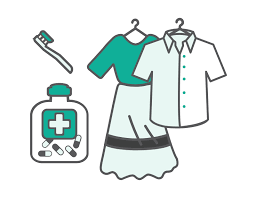As seniors age, they often require additional assistance with daily tasks and medical needs. In-home help for seniors and in-home health care services provide a practical and comfortable solution, allowing elderly individuals to maintain their independence while receiving the care they need in their own homes.
Understanding In-Home Help for Seniors
In-home help for seniors refers to non-medical assistance provided to elderly individuals who need support with daily activities. These services help seniors maintain their independence and improve their quality of life while staying in a familiar environment.
Services Provided in In-Home Help
- Personal Care Assistance
- Help with bathing, dressing, and grooming.
- Mobility support and fall prevention.
- Household Support
- Light housekeeping, laundry, and meal preparation.
- Grocery shopping and running errands.
- Companionship and Emotional Support
- Engaging in social activities and hobbies.
- Providing conversation and companionship to prevent loneliness.
- Transportation Services
- Driving seniors to medical appointments.
- Assisting with social visits and outings.
- Respite Care for Family Caregivers
- Temporary relief for family members caring for elderly relatives.
- Ensuring continuity of care when family members are unavailable.
What is In-Home Health Care?
In-home health care includes medical and therapeutic services provided by licensed professionals in a senior’s home. These services ensure seniors receive the necessary medical attention without having to visit a hospital or nursing facility.
Types of In-Home Health Care Services
- Nursing Care
- Medication management and administration.
- Wound care and post-surgical recovery support.
- Physical, Occupational, and Speech Therapy
- Rehabilitation following an illness or injury.
- Assistance with regaining mobility and daily living skills.
- Speech therapy for those recovering from strokes or neurological conditions.
- Palliative and Hospice Care
- Comfort care for individuals with serious illnesses.
- Pain management and emotional support for patients and families.
- Dementia and Alzheimer’s Care
- Specialised support for seniors with memory-related conditions.
- Assistance with cognitive stimulation and daily routines.
Benefits of In-Home Help and Health Care
- Independence: Seniors can stay in their homes while receiving necessary support.
- Personalised Care: Services are tailored to individual needs and preferences.
- Improved Quality of Life: Seniors can continue engaging in activities they enjoy.
- Reduced Hospital Visits: Professional care at home can prevent hospital admissions.
- Peace of Mind for Families: Knowing their loved ones are in good hands relieves stress and worry.
How to Choose the Right In-Home Care Provider
- Assess the Senior’s Needs
- Determine whether non-medical or medical support is required.
- Consider mobility, medical conditions, and personal care needs.
- Check Provider Credentials
- Ensure the provider is licensed and accredited.
- Look for trained and experienced caregivers or healthcare professionals.
- Read Reviews and Testimonials
- Research feedback from other clients and families.
- Choose a provider with a positive reputation.
- Compare Costs and Services
- Check for government funding options such as Home Care Packages.
- Ensure transparent pricing with no hidden charges.
- Schedule a Consultation
- Meet with potential providers to discuss care plans and expectations.
- Ensure the provider aligns with the senior’s preferences and requirements.
Conclusion
In-home help for seniors and in-home health care services provide a valuable alternative to residential aged care facilities. By offering personalised support and medical assistance, these services help seniors maintain independence, comfort, and dignity in their own homes. Whether you need basic assistance or specialised health care, choosing the right provider can make all the difference in ensuring a high quality of life for elderly loved ones.


